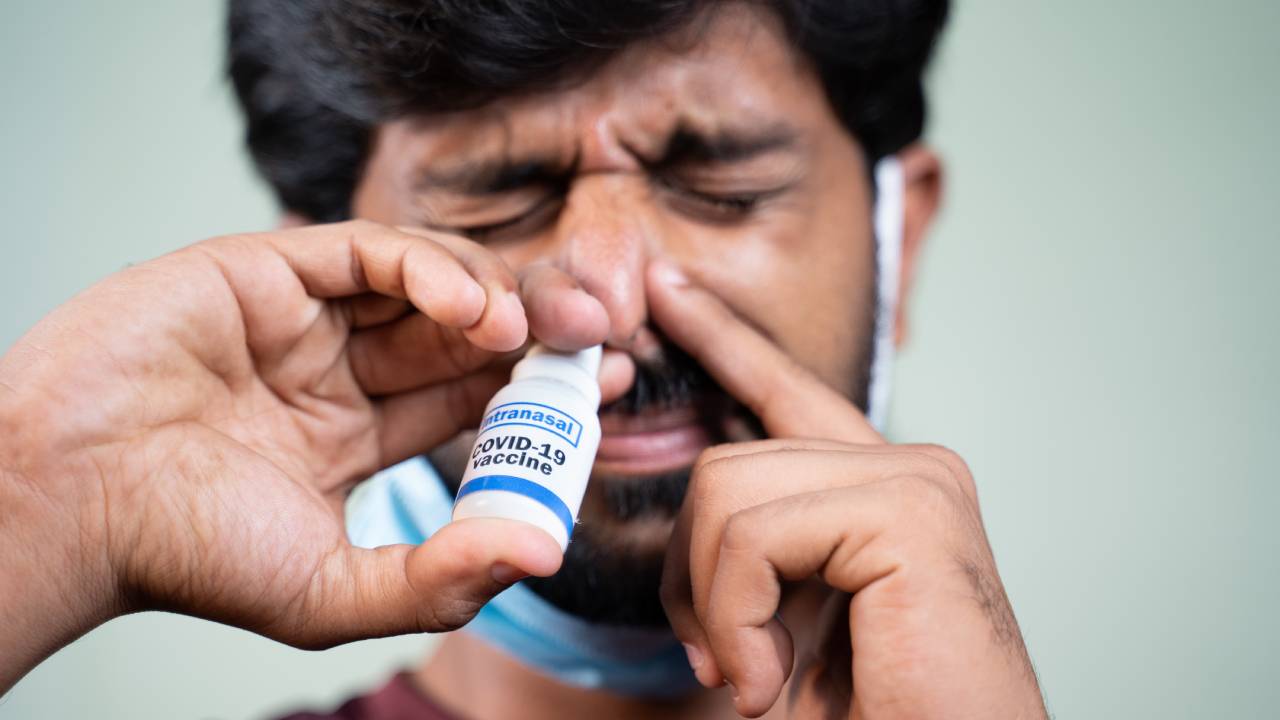Scientists creating inhalable Covid vaccine

Scientists are a step closer to creating an inhalable “aerogel” vaccine that successfully induces an immune response against Covid.
Researchers at Penn State University developed and patented a gel-like material, called an "aerogel," to deliver antimicrobials to the lungs to treat bacterial respiratory infections, particularly tuberculosis.
Graduate student in biomedical engineering and a lead author of the study Atip Lawanprasert said there was an advantage to the inhalable formulation for those who don’t like needles.
“One is avoidance of needles. Inhalable vaccines might be able to help increase the rate of vaccination because so many people are afraid of injections,” he said.
“No matter how high the efficacy of a vaccine, if people don’t get it, then it’s not useful.”
Scott Medina, an assistant professor of biomedical engineering at the university, said the team started working on the inhalable vaccine when the pandemic began.
“When the pandemic started, we decided to develop an inhalable formulation for COVID-19 by combining our aerogel with a nucleic acid-encoded antigen — specifically, DNA that encodes the SARS-CoV-2 proteins,” he said.
Their Covid formula, also known as CoMiP (coronavirus mimetic particle), was created to target alveolar macrophages, a type of white blood cell that surrounds and kills microorganisms, removes dead cells, and stimulates the action of other immune system cells.
“Alveolar macrophages represent attractive targets for inhalable vaccines because they are abundant within the lungs, and previous evidence has suggested that they may be important in early COVID-19 pathogenesis,” Medina explained.
“Alveolar macrophages are one of our key defenders against viral infection because they serve to present antigens to the rest of the immune system.”
The CoMips were tested on mice which were then given a booster dose two weeks later.
The samples from the animals were collected 14 days after the vaccine, and day 28, after the booster, which found no significant change in the systemic antibody levels between mice who received CoMiP and those that didn't.
The researchers also collected samples from immunised mice to assess differences in the total and spike-protein specific lung mucosal IgA antibodies - the predominant antibody isotype in the mucosal immune system
They found a significant increase in the total IgA for mice vaccinated with CoMiPs, but IgA specifically targeting the SARS-CoV-2 spike protein was lower than expected for the vaccinated animals.
Medina said data was “encouraging” but more will need to be done.
Image: Shutterstock
